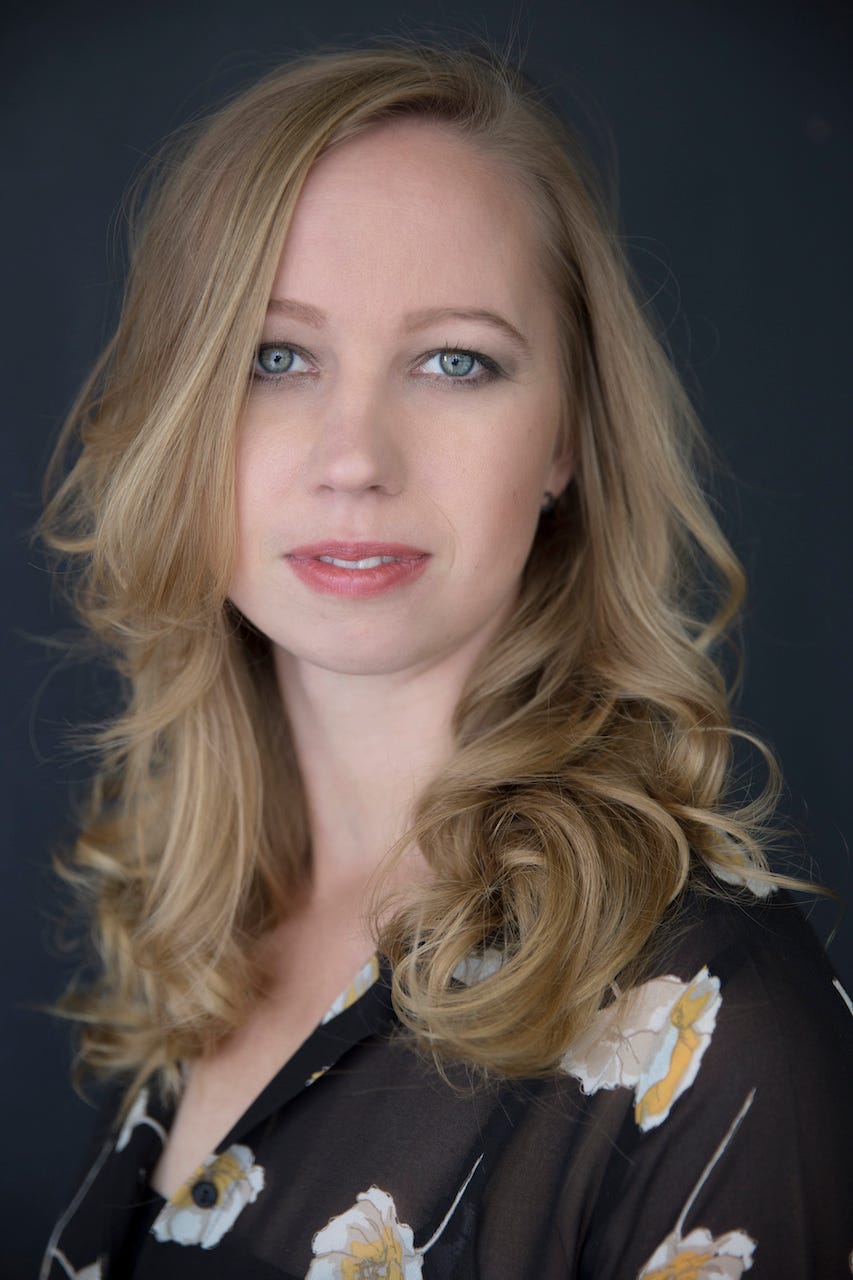Demystifying Grant Writing for Academics
A Guest Post by Dr. Christine Greenlee

I still get clammy hands and a tight chest when I think about the first big grant I applied for. It was a grant that would fund my Ph.D. in full. I was unsure how to approach this massive task. Unfortunately, my future advisor didn't have time to discuss the application, and I don't come from a family of academics who could guide me. I felt alone, out of my comfort zone, and like I didn't have the time to put into the process.
Whether we like it or not, applying for grant funding is crucial to the academic career path. In fact, securing grant funding for your research is often the secret ingredient to landing your dream job in many fields. So let's pull that skill out into the light and talk about it!
Like all the other aspects of your job, it's a skill that you can improve. And that's my first insight for you in this post: adjust your mindset! Pour a cup of hot coffee or sweet tea and consider your attitude toward grant applications. Some examples I've heard:
“I just don't have the know-how to write a good application.”
“I always end up applying for grants at the last minute when a deadline is really close because I only just found out about it.”
“I don't have a good research idea, so I just don't even bother trying to look for funding.”
You can replace these negative thoughts with more positive ones by telling yourself things like, "I can make time to work on research ideas and to research the grants I want to apply for so I do not get caught up in last-minute pursuits," or "grant writing is a skill that other people have learned; I can learn it, too."
Once you have established your mindset, the five steps below will guide you through the grant application process and, hopefully, demystify the endeavor!
Step 1: Define your project
Before even looking at any funding applications, I encourage you to turn to what you love: your research! Your research is your guiding muse in all of this. If you need more research ideas, I suggest you create a list by reviewing articles in top journals from the last 3-5 years. Write down ideas that inspire you!
In this step, you want to clarify the project you'd like to carry out. If it's still only an idea, then now is the time to do a literature review and start discussing it with your colleagues, mentors, or brother—whoever can help advance it.
At this stage, I recommend making a folder on your preferred online drive (e.g., Google Drive or Dropbox) named, e.g., “Grant applications” and then a document within this folder named, e.g., “Master project description”—I'll explain why later! In this document, you want to work on answering the following questions with as much clarity as possible:
What is the overall topic of the project?
What are 1-3 research objectives within the project?
Why is this project important?
Why is it important that the project be carried out now (or soon)?
What method, theory, or material will I/we use for this project?
Where will the results be published or shared?
This document is now the core of your project. You write it up before you start looking for grants, so you do not get sidetracked by interesting grant opportunities that do not actually align with your research.
Step 2: Make a strategy
The next step is to make a funding strategy for the next year or two. This is where your research skills and creative thinking will serve you well! Consider who you can partner with for your project. You will have more grant options if you can partner with a nonprofit. For example, I recently spoke to a nonprofit leader who had partnered with a university to research military families' mental health. The researchers were able to publish their results, and the nonprofit, which serves military families, built a program that addressed some of the issues that came up from the research.
I recommend putting aside 10–20 hours to research available grants through various databases; Google is not your friend in this particular instance. I recommend Instrumentl, Pivot, Foundation Directory Online (FDO), grants.gov, or SPIN for American funding opportunities. Your institution should have access to at least one of these databases. You'll be looking for all opportunities, not just the ones coming up soon. Consider how many grants you realistically have time to apply for over the next 12–18 months. Usually, 3-5 is a sweet spot.

I want you to double- and triple-check eligibility. It's a terrible waste of time to apply for grants you aren't eligible for. Reach out to the funders at this stage, too. Ask how many applications they received and how many were awarded grants; this will tell you how competitive the grant is. Also, reach out to past recipients at this stage. They may be friendly and willing to help! Their insights and applications are worth gold, in my experience. You should also find out who the reviewers are—are they, e.g., subject experts or research-loving philanthropists?
Now consider how much work it will be to apply for each separate grant. Some small grants are too much work, while others are quick and easy, making them a great use of your time.
At the end of this process, I'd love for you to have lined up 3-5 grants you feel great about. Look up deadlines and create a calendar for yourself. You can sign up for their newsletter and set reminders for yourself to check it around the time they usually have a call for applications. You can also plan your year to incorporate some serious time chunks in the weeks leading up to the grant deadline.
Step 3: Get organized
Honestly, if there is one takeaway I hope you get from this post, it's that good project management is an act of self-care. You can't eliminate the final rush of adrenaline when you finally click submit on a big application, but you can eliminate most of the stress and overwhelm leading up to that point. There are many moving parts in grant applications: budgets, literature reviews, letters of support, letters of recommendation, and CVs. All of these elements are relatively easy in and of themselves, but put them together and add them to an already busy schedule and multiple grant deadlines, and you've got yourself an unsavory recipe for burnout.

I recommend using a project management tool; Notion and Asana are both great (free) options. Using these tools, you can work back from the deadline to assign yourself mini-deadlines, e.g., “request letters of recommendation” by June 5 or 'finalize budget' by June 15. You don't want to keep track of anything in your head alone; you risk dropping the ball on something important, and you risk feeling extremely overwhelmed with the whole process.
Step 4: Apply
The application itself will always require more time than you initially thought. Small applications usually take somewhere between 10 and 20 hours. Large research applications can take up to 100 hours. I recommend breaking the application down into mini-tasks and calculating how much time it will take by adding them together. Remember to factor in project management time, time for others to write their letters of recommendation, and revision time.
This step is where that "Grant Applications” folder on your Google Drive comes into play. For each application, you want a folder. Download all the relevant information and place it in the appropriate folder, such as the application guidelines (make sure they're the most recent), budget, letters of recommendation, etc. Many applications use online portals. I don't recommend working in the portal. Instead, make a document in the folder, copy all the relevant questions, and fill them out in the document (be careful of word limits and such). Paste it back into the online application when you are almost ready to submit. Every application is slightly different, but your “Master project description” will hopefully help you immensely.
Pay close attention to the grant guidelines (just as you do with journal guidelines!) regarding word count, font, etc., and audience. Use what you gathered in the “strategy step” here: are the grant reviewers subject experts? Or are they laypeople? This should factor into how you respond to the questions.
It's also always worth it to have someone else review your application. Consider trading applications with a friendly colleague or finding a professional to help with this stage. Finally, submit your application at least two days early! Something inevitably goes wrong, and you want to avoid trying to fix that 5 minutes before the application closes!
Step 5: Celebrate
Once you hit submit, I strongly encourage you to celebrate! It's a big milestone. And a lot of work. It's tempting to tell yourself that you will celebrate IF you get the funding. I've definitely been of that mindset. However, submitting an application on time is a win in and of itself. Instead of waiting, experiment with having a little celebration once you submit. For some reason, my celebrations are usually food- and community-focused, like going out for sushi with my husband or getting cupcakes with my kids!

You can celebrate again if you are awarded the funding! And if you don't get the funding, it's not a failure. This is another mindset shift that I'd love to encourage: not getting awarded is a learning opportunity, not the end of the world. Reach out to the funders to ask for feedback (although they don't always offer it) and put this information on your Google Drive in a 'Feedback' folder so you can use it for your next application. Know that there are more opportunities out there - you have a strategy! And you are free to apply for the same grant again.
Hopefully, now you also have a process that will keep you in the game without the feeling of clammy hands and a tight chest. And if you're wondering about my first big grant... I got that grant for my Ph.D. Now, over 10 years later, I help researchers, small businesses, and nonprofits apply for grant funding for a living!
Christine Greenlee, Ph.D., helps researchers and nonprofits get funding so that they can make our world a better place without the stress of applying for grants. Reach out to her for a coffee chat by connecting with her on LinkedIn if you think she can help!



